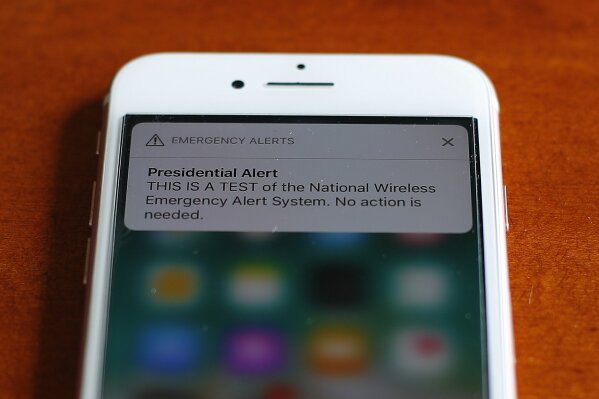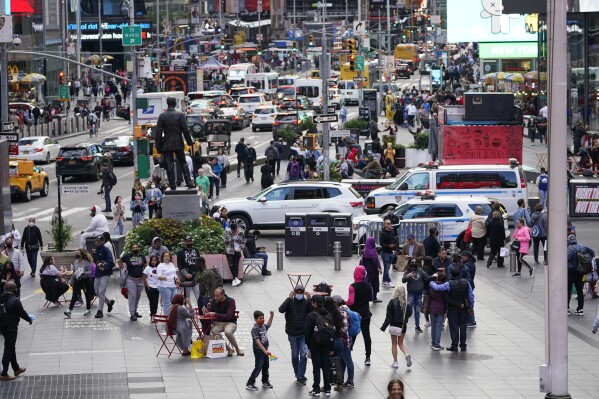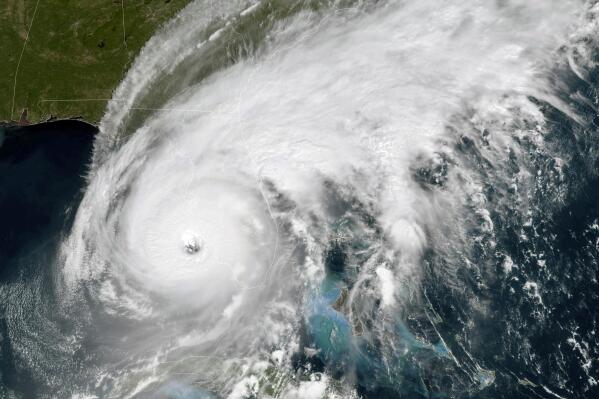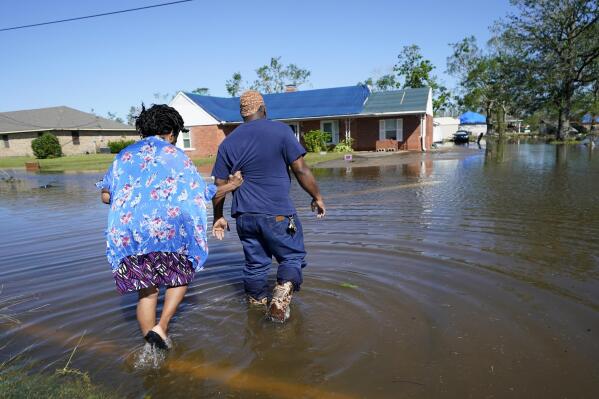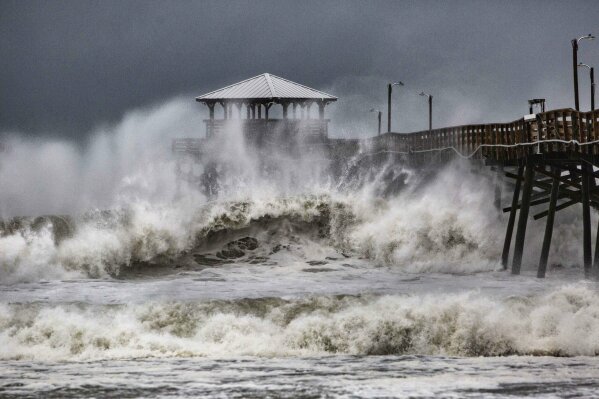Climate change doesn’t cause hurricanes. But it may increase their frequency and intensity
This Tuesday, Aug. 29, 2023, 1:31 p.m. EDT satellite image provided by the National Oceanic and Atmospheric Administration shows Hurricane Idalia, center, approaching Florida’s Gulf Coast, and Hurricane Franklin, right, as it moves along the East coast of the United States, southwest of Bermuda. The Associated Press on Thursday, Sept. 14, 2023 reported on social media posts suggesting that climate change isn’t real because more than 100 hurricanes have struck Florida since 1850. (NOAA via AP)
CLAIM: Climate change isn’t real because Florida has had 119 hurricanes since 1850.
AP’S ASSESSMENT: False. Scientists don’t believe climate change causes hurricanes but research has shown the gradual warming of the Earth’s surface may play a role in the intensity and frequency of the strongest ones.
THE FACTS: As hurricane season bears down on the U.S. East Coast, social media users are once again using the annual arrival of the powerful storms to question the existence of climate change.
“Florida has had 119 hurricanes since 1850, but the last one was due to climate change,” reads one widely shared meme.
But the suggestion that climate change can somehow be disproven by centuries of recorded hurricanes is absurd, researchers say. Even the number of hurricanes cited in the meme, which has been around at least two years, is outdated.
“No one has ever claimed that hurricanes are new and are caused by climate change,” Brian McNoldy, a hurricane researcher at the University of Miami, wrote in an email Thursday.
“Very intense, devastating hurricanes have been documented for hundreds of years,” he continued. “None of that negates the fact that climate change is happening and changing the atmosphere and ocean at rates we haven’t seen before.”
Gabriel Vecchi, a hurricane researcher at Princeton University who also directs its High Meadows Environmental Institute, agreed, adding that the question for researchers isn’t whether climate change causes hurricanes but what role it’s playing in their frequency and intensity.
“Climate change doesn’t cause hurricanes,” he wrote in an email. “We’re almost certain that hurricanes have been present in the Atlantic for at least the past few thousand years, and probably longer.”
Hurricanes, which are known as tropical cyclones elsewhere in the world, generally form over the ocean when the right mix of warm water, humid, moisture-rich air and low vertical wind shear combine, according to the National Oceanic and Atmospheric Administration.
But there’s growing evidence that the impacts of climate change, such as rising sea levels, are already making the most severe hurricanes even more intense and increasing the likelihood that a developing hurricane will rapidly intensify, leading to more flooding and more powerful storm surges battering coastlines, experts say.
“It’s a law of nature that a warmer atmosphere holds more moisture,” McNoldy explained. “Sea level rise is also increasing the baseline upon which a hurricane’s storm surge occurs, making coastal flooding more likely and severe.”
Vecchi added that there’s already evidence that hurricane rainfall levels have increased due to global warming. But the jury is still out on whether climate change is impacting the frequency of major hurricanes, he acknowledged.
“Many of us think that the global warming signal on major hurricane frequency has not yet emerged from the noise and impact of other drivers,” Vecchi wrote. “Most studies suggest that the signal of global warming on hurricane intensity will grow and become more marked over the ongoing century.”
Besides its faulty premise, the widely circulating meme doesn’t even get the current number of hurricanes in Florida correct, notes David Zierden, Florida’s state climatologist based at the Center for Ocean-Atmospheric Prediction Studies at Florida State University.
From 1850 to last year, 124 hurricanes struck Florida within 20 miles of its coastline, according to NOAA’s hurricane database.
Factoring in Hurricane Idalia, which battered the state late last month, that number is now 125.
___
This is part of AP’s effort to address widely shared misinformation, including work with outside companies and organizations to add factual context to misleading content that is circulating online. Learn more about fact-checking at AP.

